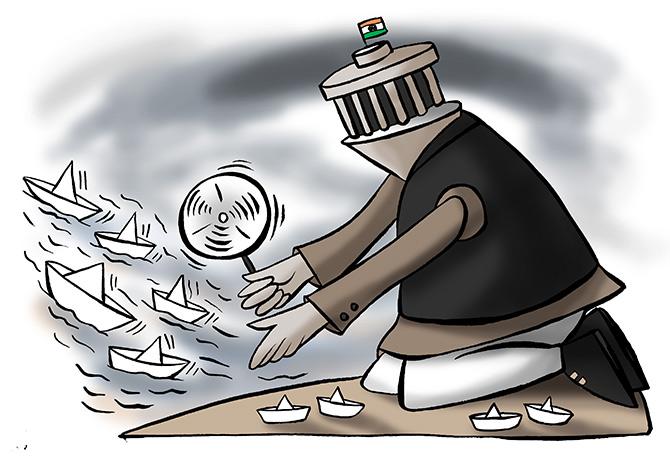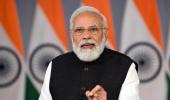As India goes into firming up trade deals with developed nations like Australia, the United Kingdom (UK) and the regional bloc, and the European Union (EU), it will have to be well prepared to negotiate on new-generation issues, such as data protection regulation, e-commerce, and environment.

India is yet to negotiate pacts with its trading partners on these evolving issues since discussions between them have until now been largely focused on tariff and non-tariff barriers and the rules of origin.
“We can no longer look at trade just as trade. We have to look at it in totality of global and regional conditions.
"Today, international trade needs to be looked at inclusive of many issues, such as investment, clean energy, digitalisation, movement of people, intellectual property, and technology,” said Amitendu Palit, senior research Fellow, Institute of South Asian Studies, National University of Singapore.
This is where India faces a challenge in negotiating free trade agreements (FTAs), said Palit.
“Today’s FTAs, particularly those India is negotiating, will be more exhaustive and complex than the earlier ones,” said Palit.
Elaborating, he said without any sustainable trade practices or clean energy practices, most trade agreements (with developed nations) may not be possible.
To buttress his point of view, he cited the example of the EU which has a 21st century template as far as FTAs are concerned.
This template may include subjects like environment, labour, competition policy rules for state-owned public enterprises, among others, said Palit.
Similarly, Australia may demand data protection for investors in India.
The UK may want India to open up its domestic legal market (with reciprocity).
“The concern is whether India is equipped to handle negotiations on these evolving issues, especially with stiff deadlines with respect to finalising these trade agreements,” he said.
Over the past decade or more, India had signed trade agreements with countries on its east — Singapore, Thailand, Japan, trade blocs, such as the Association of Southeast Asian Nations, among others.
However, there has been a visible shift now.
India has been trying to look West for quite some time, but none of the deals have fructified so far.
Now, India is girding up its loins to cement stronger strategic and economic ties with these nations.
“Today, India is looking at trade from a geostrategic, geoeconomic, and political perspective.
"As a result, it is looking to work out bilateral trade deals with its important strategic allies.
"Many of these allies are on India’s west, some like Australia on its east,” said Palit.
India has revamped its trade strategy and is in a rush to negotiate a spate of FTAs with its top trading partners — the UK, the EU, the United Arab Emirates (UAE), and Australia.
This assumes more importance now since India is not a part of any major regional trade bloc.
A year ago, India walked away from the China-backed Asian trade bloc Regional Comprehensive Economic Partnership (RCEP) after negotiating the deal for seven years, prioritising needs and demand of the domestic industry.
RCEP was signed by 15 nations in November last year to create the world’s biggest free trade bloc.
Right now, the message India wants to send is clear — that it wants to engage with the rest of the world, or else it will shut itself out from the global markets.
Over the past six months, countries have set ambitious deadlines to fructify them, and in most cases, India is strategising to first ink a mini trade or an early-harvest deal, which will be a precursor to an FTA that will be signed in a year or so.
With the stiff target of finalising early-harvest deals with Australia, the UAE, and the UK next month, these mini pacts have to be drafted carefully.
India is also keen on inking a trade pact with Canada that got further delayed by the outbreak of the pandemic and elections in that country.
Last month, India and Israel also decided to renew negotiations on an FTA and a deadline of mid-2022 has been set.
Arpita Mukherjee, professor at Indian Council for Research on International Economic Relations, said the priority should be to quickly focus on reducing tariffs on areas amicable to India and the country it is signing these deals with.
“With stiff targets ahead, nations should not complicate early-harvest agreements by bringing in issues pertaining to non-tariff barriers, such as adhering to standards, or government procurement norms in these countries,” he said.












 © 2025
© 2025